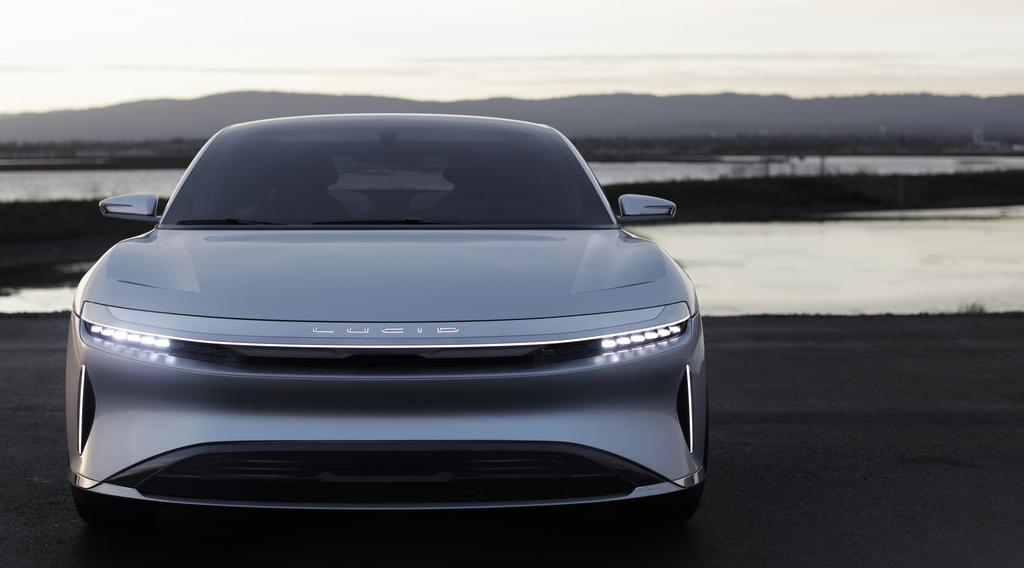
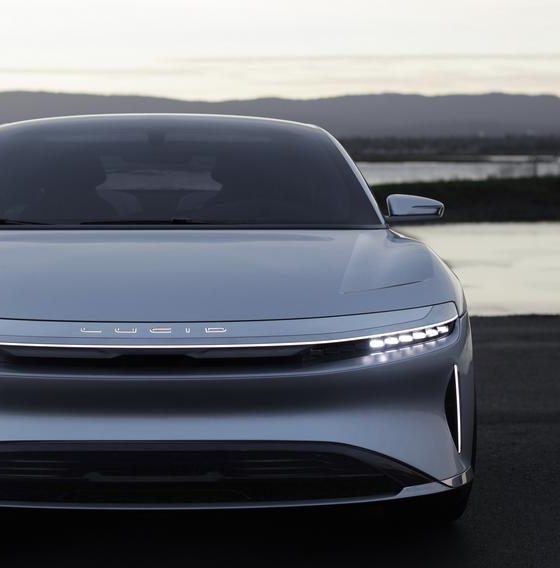
News
Land for Lucid Motors Arizona factory will reportedly be paid by tax payers
Officials in Pinal County, Arizona are considering ways to raise the money needed to purchase 500 acres of land near the city of Casa Grande where Lucid Motors intends to build its $700 million electric car factory. The proposed manufacturing facility was the subject of a high profile press event earlier this month that featured Arizona governor Doug Ducey. All parties acknowledge Ducey was a key player in landing the project for the state of Arizona.
There is only one problem with the deal — the taxpayers of Arizona are expected to pay for the purchase of the land and contribute a significant amount of money to help it get the factory built and operational. When and if everything goes as planned, the factory is expected to create 2,000 jobs in an area where many are unemployed or underemployed.
The land itself will cost $31.8 million, Financing the purchase over 30 years will add another $41.6 million, but Pinal County spokesperson Joe Pyritz says the plan is to lease the land after is is purchased (presumably to Lucid Motors, although the county is not allowed to say so for the record) and then sell it at the end of 5 years. That arrangement would cap the total cost of the deal at $35 million. The sale price is expected to equal the total outlay made by the county for principal and interest.
However, first someone has to actually buy the land. County supervisors will meet in January to consider how to do that. The leading proposal is to finance the purchase by raising property taxes or imposing a countywide sales tax surcharge. Pyritz says if the supervisors decide on a tax increase, the new tax would only cover the land deal and would end once the tax funding reimburses the county for the purchase cost.
Lucid will get other sweeteners to bring its business to Pinal County. The project involves what the Phoenix New Times calls “a significant amount of corporate welfare.” Lucid Motors will be eligible for up to $46.5 million in various subsidies offered by the state through the Arizona Commerce Authority over the next five years. Those subsidies will be coupled with certain performance targets.
The subsidies include:
- $5 million in grant money over five years, dependent on meeting specified job-creation and capital-investment milestones.
- $1.5 million in grant money for job training. The company would pay for the cost of training employees and the state would reimburse 75 percent of the cost over two years.
- $40 million in refundable tax credits under the Qualified Facility Tax Credit Program the legislature created in 2012.
Susan Marie, spokeswoman for the Arizona Commerce Authority is quick to point out that the total amount is far less than the $335 million in tax credits promised to Faraday Future or the $1.3 billion in similar credits promised to Tesla Motors by the state of Nevada.
Lucid revealed its 1,000 horsepower proposed production car — the Lucid Air — last week. The 4 door sedan is said to have up to a 135 kWh battery capacity and capable of driving 400 miles per single charge. The result is something that tops Tesla’s flagship Model S P100D and by a considerable margin. Does that mean Lucid will win customers away from Tesla?
That’s unlikely. Granted that Lucid may have an edge in some areas, it lacks a charging infrastructure. Without something comparable to Tesla’s Supercharger network while having no brand recognition, peeling customers away from Tesla will be a lot harder than just offering a larger battery. But first, Lucid needs to build a factory. That first step is far from guaranteed despite lofty promises form the company.

News
Tesla’s Sweden standoff draws UAW support as unions widen pressure campaign
In a post shared on social media, the United Auto Workers stated that it stands with IF Metall workers who are striking against Tesla Sweden.
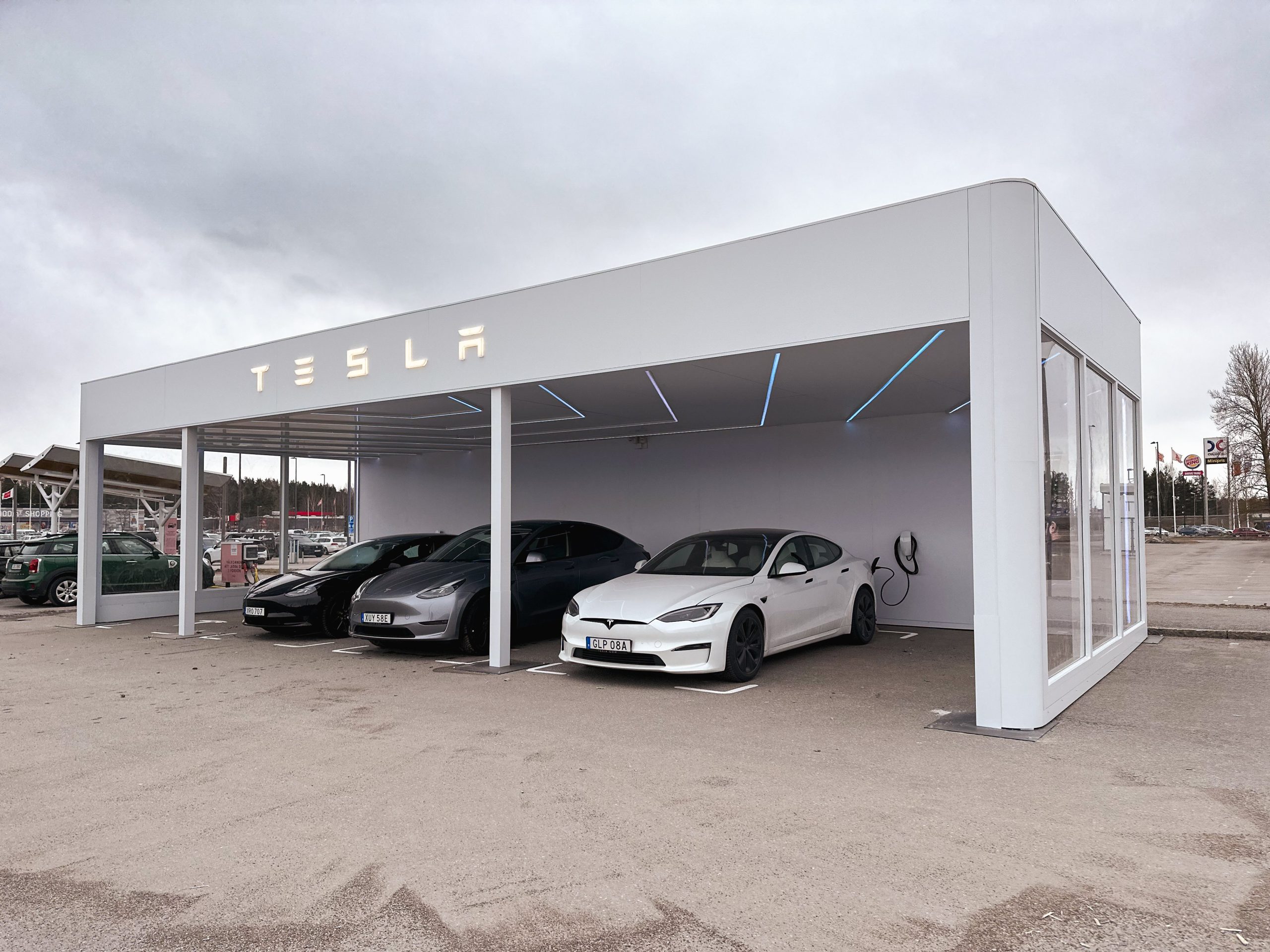
The United Auto Workers (UAW) has publicly expressed solidarity with Swedish union IF Metall as its strike against Tesla continues, adding international attention to the extended labor dispute in the European country.
UAW supports IF Metall’s strike
In a post shared on social media, the United Auto Workers stated that it stands with IF Metall workers who are striking against Tesla Sweden. UAW Region 8 Director Tim Smith stated that the union fully supports IF Metall’s efforts to secure a collective bargaining agreement with the automaker.
“UAW stands with IF Metall workers on strike against Tesla, fighting for a collective bargaining agreement. UAW Region 8 Director Tim Smith pledged the UAW’s full support and solidarity,” the UAW International Union stated in its post.
IF Metall launched its strike against Tesla Sweden in late 2023 over the electric car maker’s refusal to sign a collective agreement. The action has since been supported by other unions through sympathy strikes affecting ports, logistics, and service operations.
Tesla Sweden has maintained that it complies with Swedish labor laws and offers competitive pay and benefits, though the company has not publicly commented on the UAW’s latest show of support.
Tesla owners get union attention
Pro-union groups in Sweden have recently expanded their outreach beyond Tesla’s facilities and workforce. Activists have begun distributing informational leaflets against the EV maker directly on Tesla vehicles parked across Stockholm, as per a report from Swedish outlet Dagens Arbete.
The yellow slips, designed to resemble parking notices, urge regular Tesla owners to pressure the company into signing a collective agreement. Organizers involved in the effort have argued that the leaflets are intended to simply inform consumers rather than single out individual owners. When owners are present, however, activists stated that they explain the dispute verbally.
Tesla has not issued a public response regarding the leaflet distribution campaign as of writing.
News
Starlink goes mainstream with first-ever SpaceX Super Bowl advertisement
SpaceX used the Super Bowl broadcast to promote Starlink, pitching the service as fast, affordable broadband available across much of the world.
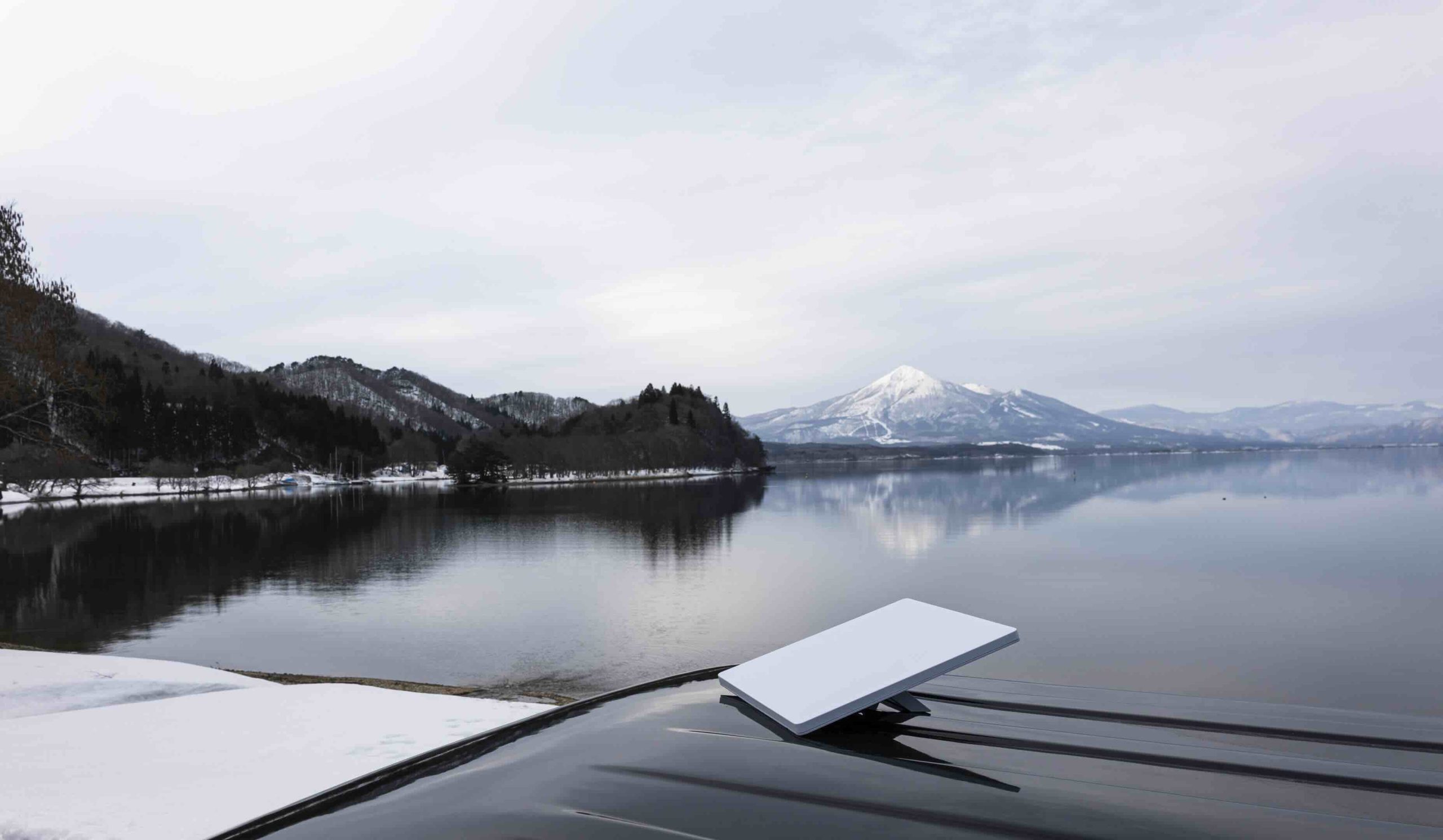
SpaceX aired its first-ever Super Bowl commercial on Sunday, marking a rare move into mass-market advertising as it seeks to broaden adoption of its Starlink satellite internet service.
Starlink Super Bowl advertisement
SpaceX used the Super Bowl broadcast to promote Starlink, pitching the service as fast, affordable broadband available across much of the world.
The advertisement highlighted Starlink’s global coverage and emphasized simplified customer onboarding, stating that users can sign up for service in minutes through the company’s website or by phone in the United States.
The campaign comes as SpaceX accelerates Starlink’s commercial expansion. The satellite internet service grew its global user base in 2025 to over 9 million subscribers and entered several dozen additional markets, as per company statements.
Starlink growth and momentum
Starlink has seen notable success in numerous regions across the globe. Brazil, in particular, has become one of Starlink’s largest growth regions, recently surpassing one million users, as per Ookla data. The company has also expanded beyond residential broadband into aviation connectivity and its emerging direct-to-cellular service.
Starlink has recently offered aggressive promotions in select regions, including discounted or free hardware, waived installation fees, and reduced monthly pricing. Some regions even include free Starlink Mini for select subscribers. In parallel, SpaceX has introduced AI-driven tools to streamline customer sign-ups and service selection.
The Super Bowl appearance hints at a notable shift for Starlink, which previously relied largely on organic growth and enterprise contracts. The ad suggests SpaceX is positioning Starlink as a mainstream alternative to traditional broadband providers.
Elon Musk
Tesla engineers deflected calls from this tech giant’s now-defunct EV project
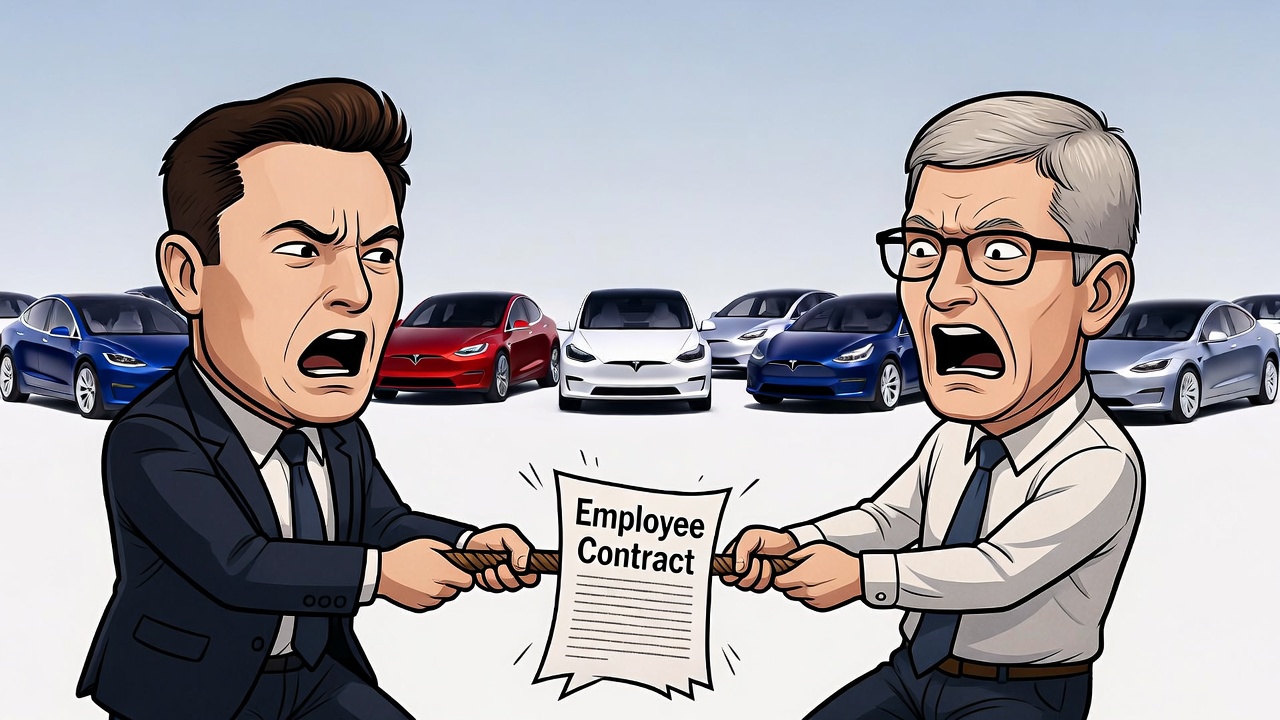
Tesla engineers deflected calls from Apple on a daily basis while the tech giant was developing its now-defunct electric vehicle program, which was known as “Project Titan.”
Back in 2022 and 2023, Apple was developing an EV in a top-secret internal fashion, hoping to launch it by 2028 with a fully autonomous driving suite.
However, Apple bailed on the project in early 2024, as Project Titan abandoned the project in an email to over 2,000 employees. The company had backtracked its expectations for the vehicle on several occasions, initially hoping to launch it with no human driving controls and only with an autonomous driving suite.
Apple canceling its EV has drawn a wide array of reactions across tech
It then planned for a 2028 launch with “limited autonomous driving.” But it seemed to be a bit of a concession at that point; Apple was not prepared to take on industry giants like Tesla.
Wedbush’s Dan Ives noted in a communication to investors that, “The writing was on the wall for Apple with a much different EV landscape forming that would have made this an uphill battle. Most of these Project Titan engineers are now all focused on AI at Apple, which is the right move.”
Apple did all it could to develop a competitive EV that would attract car buyers, including attempting to poach top talent from Tesla.
In a new podcast interview with Tesla CEO Elon Musk, it was revealed that Apple had been calling Tesla engineers nonstop during its development of the now-defunct project. Musk said the engineers “just unplugged their phones.”
Musk said in full:
“They were carpet bombing Tesla with recruiting calls. Engineers just unplugged their phones. Their opening offer without any interview would be double the compensation at Tesla.”
Interestingly, Apple had acquired some ex-Tesla employees for its project, like Senior Director of Engineering Dr. Michael Schwekutsch, who eventually left for Archer Aviation.
Tesla took no legal action against Apple for attempting to poach its employees, as it has with other companies. It came after EV rival Rivian in mid-2020, after stating an “alarming pattern” of poaching employees was noticed.








